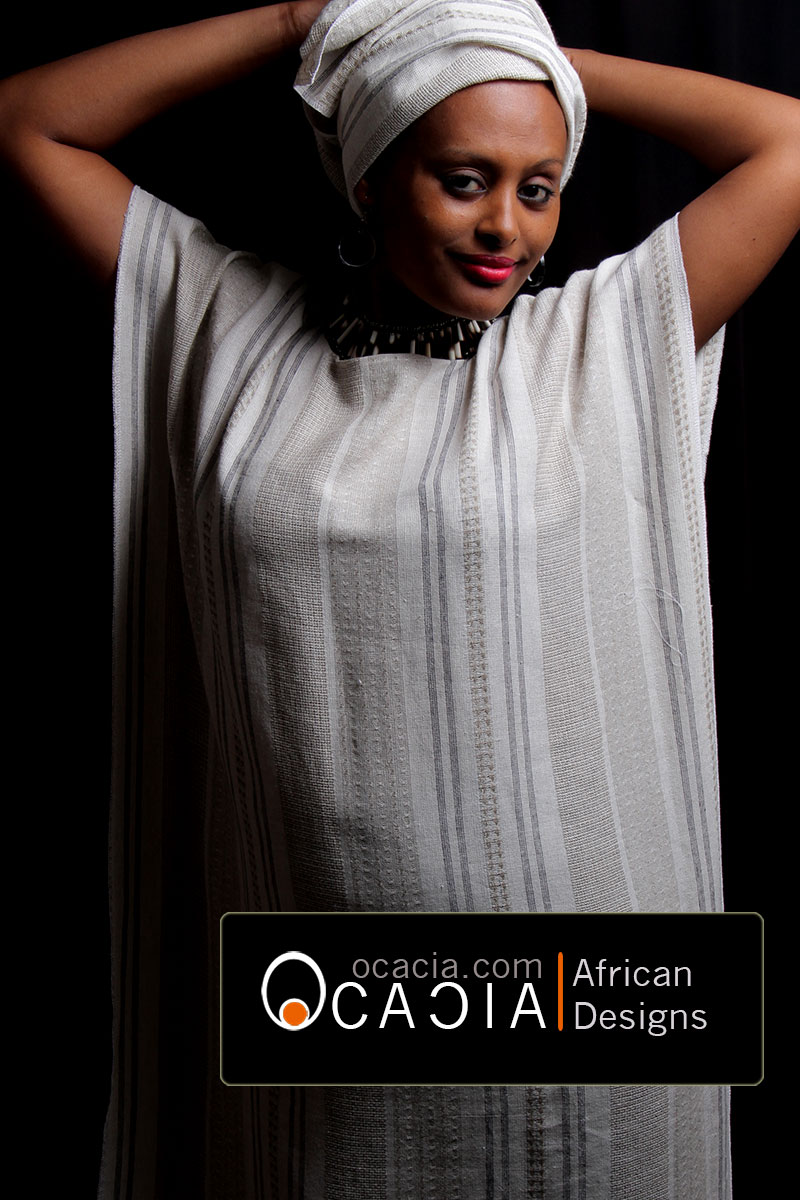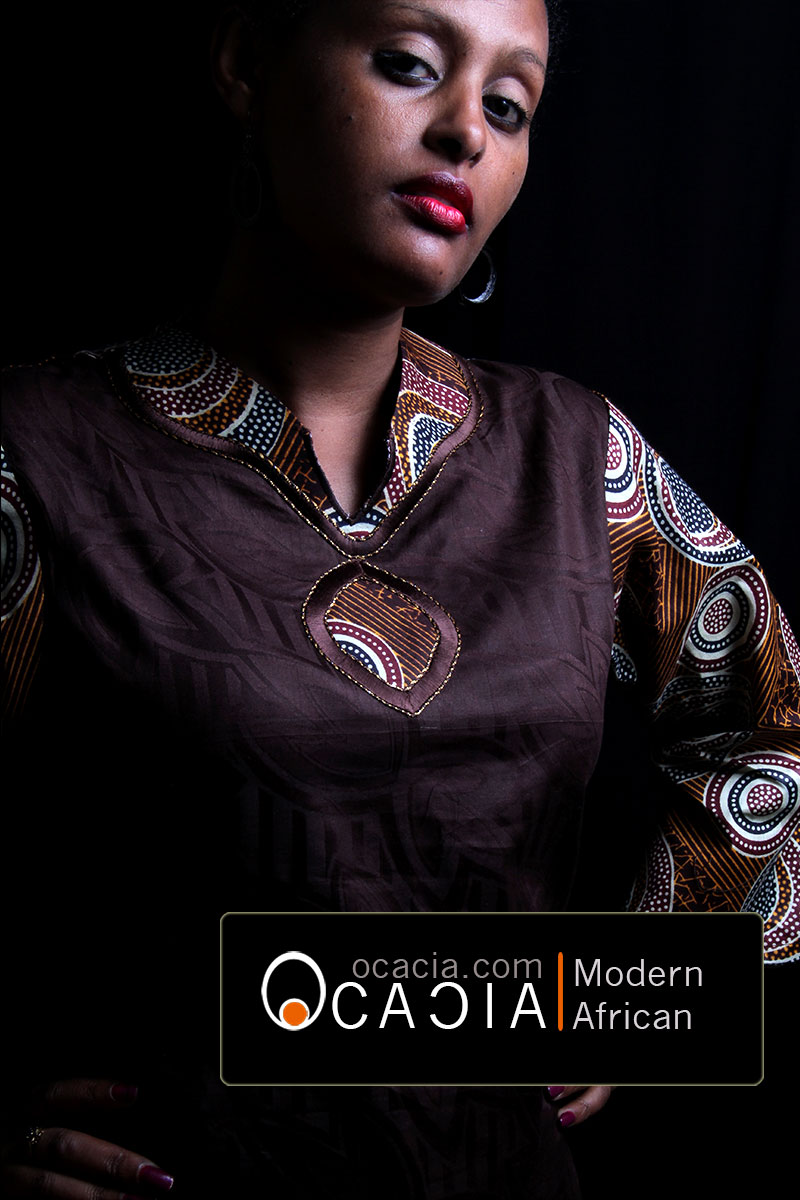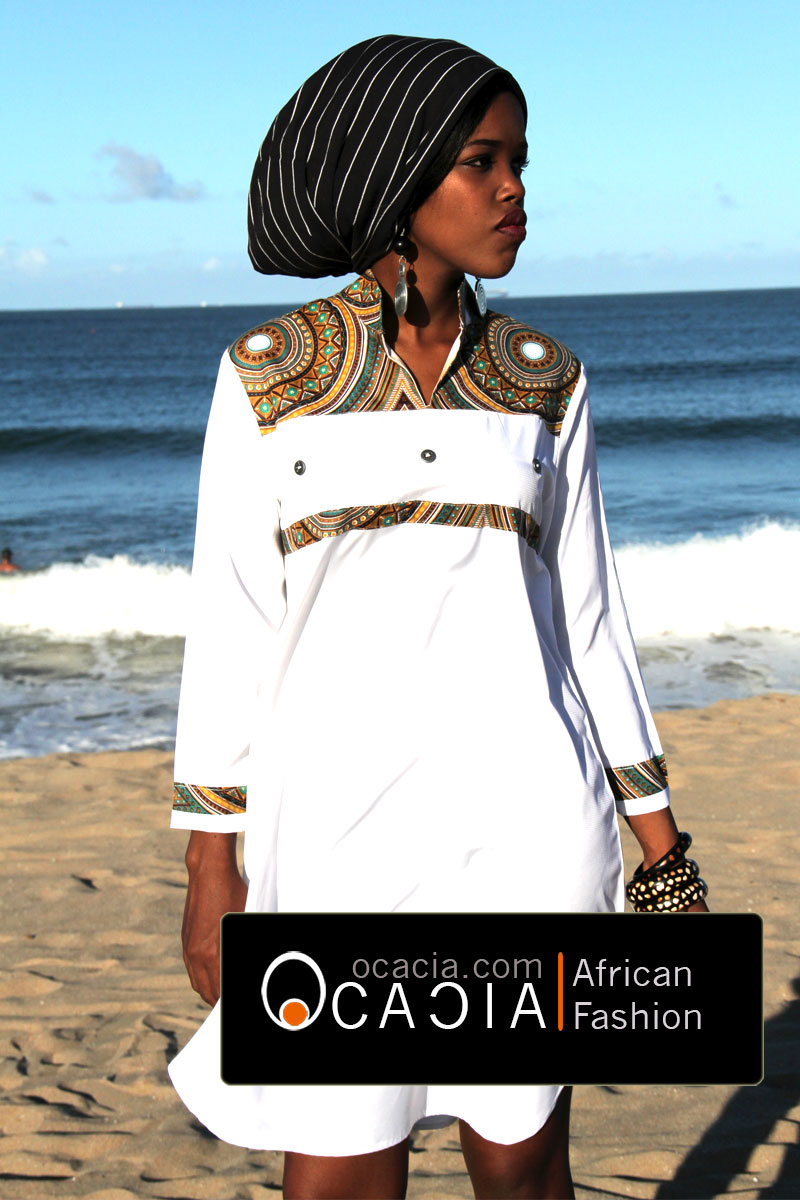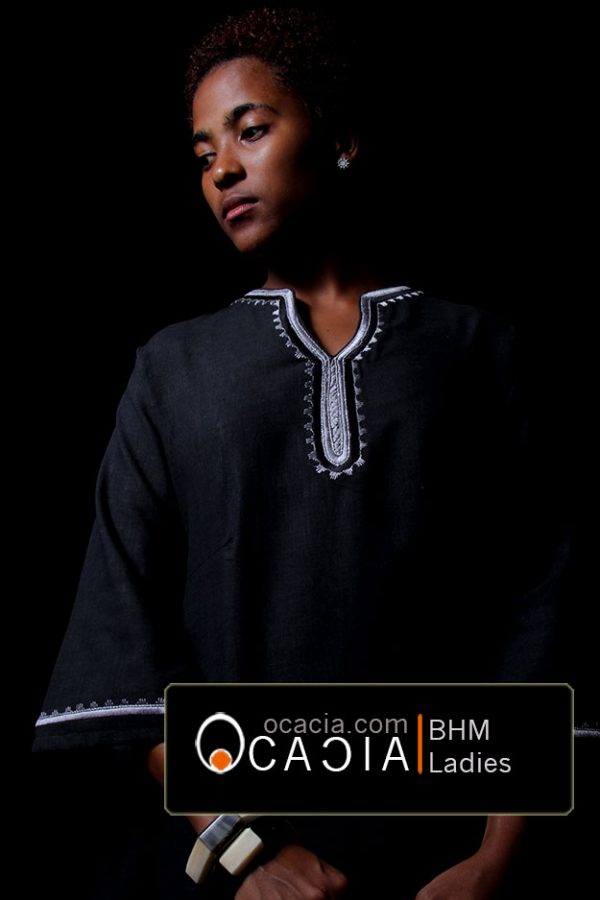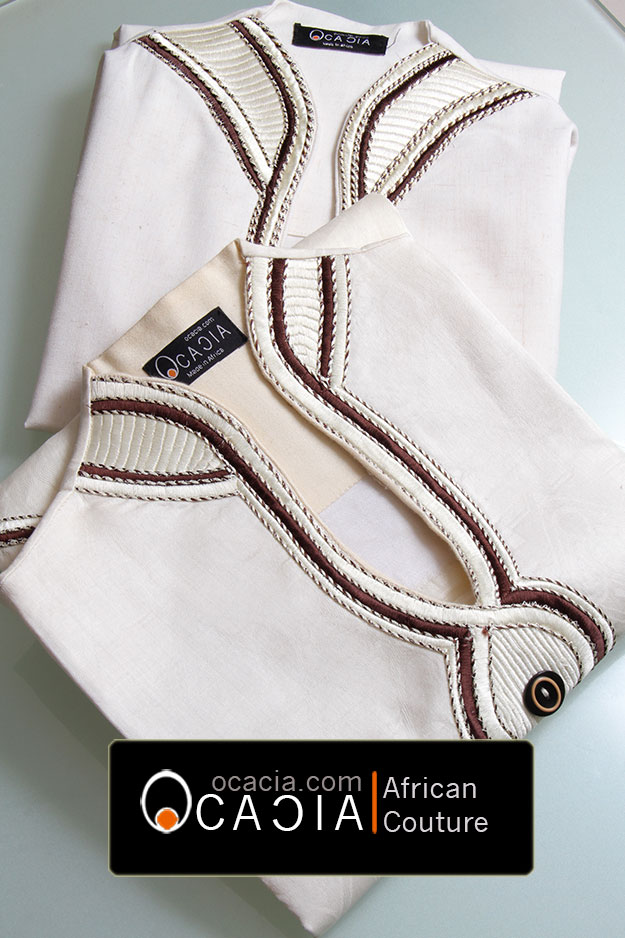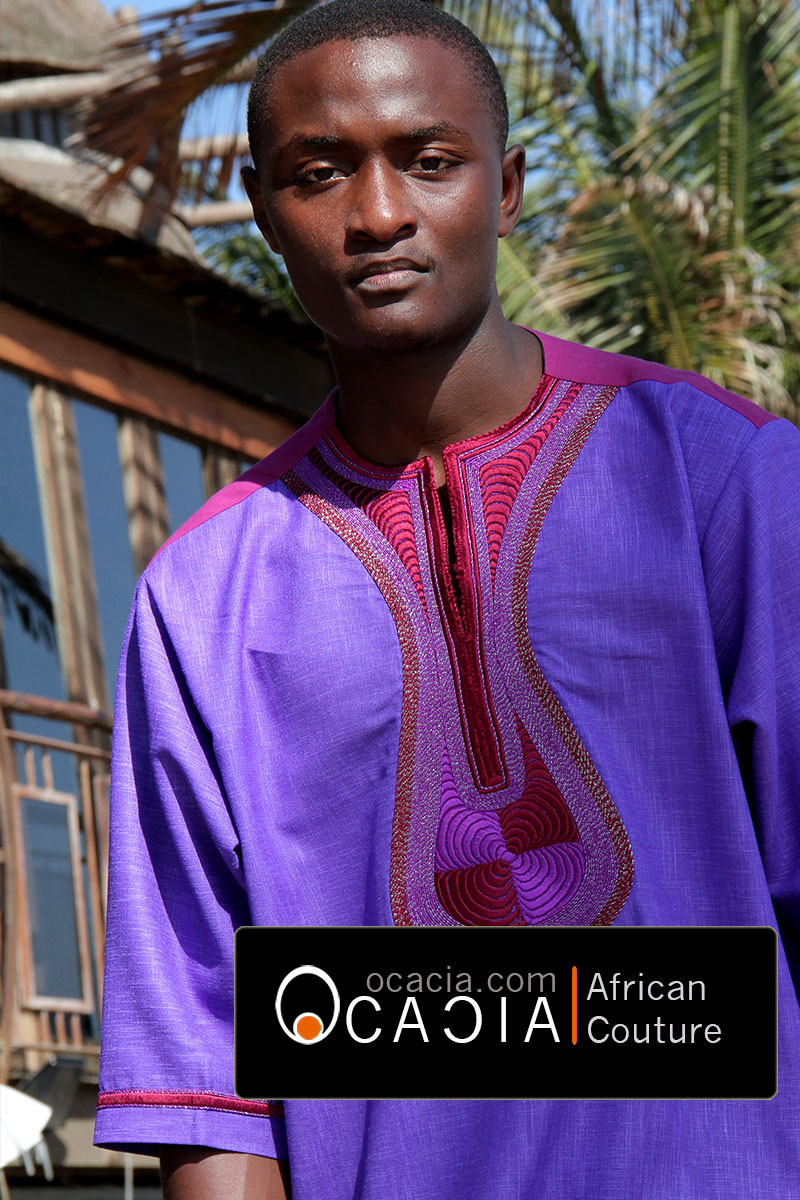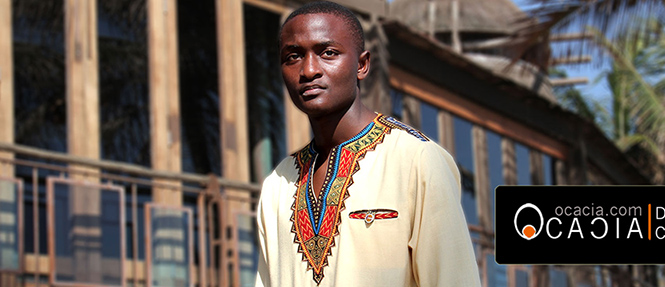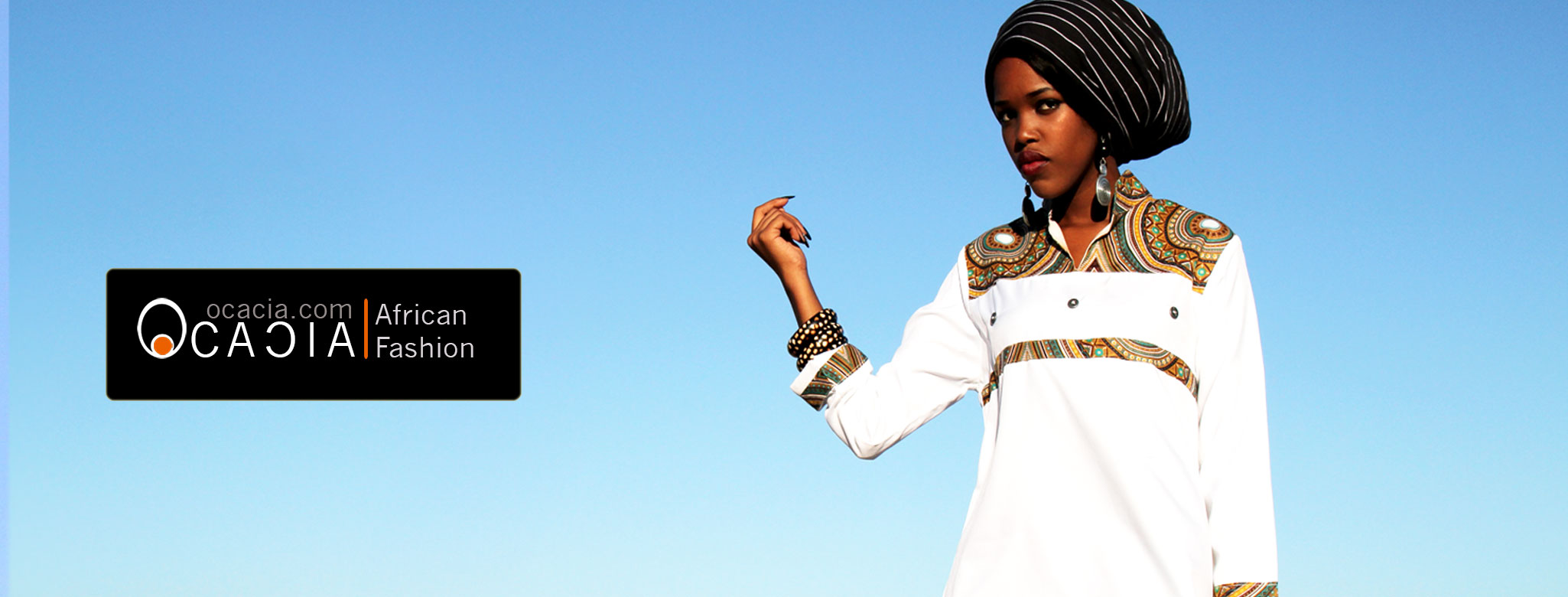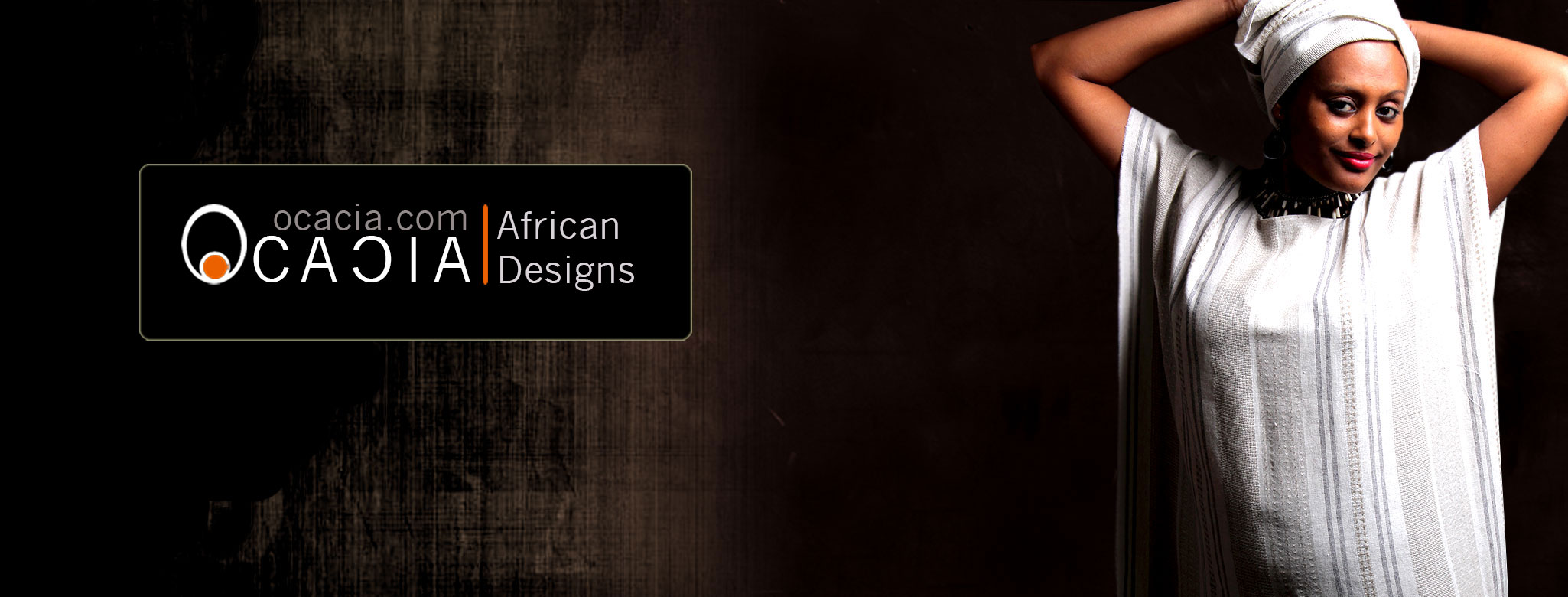As one of the few African fashion retailers in the world, Ocacia intends to put some respect back into the name ‘Africa.’ Nu Origins had the pleasure to speak to head designer, Betelihem Zelealem, regarding the Ocacia mission and the state of African-owned businesses in today’s globalized fashion market.
1) When did you first establish Ocacia?
Ocacia was established four years ago.
2) What made you decide to become a fashion designer?
It was less about becoming a fashion designer per say but rather dealing with zero representation and stepping into what shoes were needed to get the job done.
3) What was your motivation?
As consumers of African clothes, our concern was the reduced availability of quality modern African garments. We could not understand why, in a world so diverse, other cultural groups like Indians had such a vast luxury market in their cultural clothes, but African people had next to none. We realized that something had to be done to create an African designer label that could go toe-to-toe with the rest of the globalized world.
4) What would you say makes you stand out from other African fashion retailers?
We are a designer brand, and in that area I think companies like us will fit on the one hand. And a designer label is very different from a retailer who is simply selling African clothes. We have a united aesthetic and adhere to strict quality standards. We make all our clothes; they are not sourced or outsourced. We are also the only Africans in the world making African designer jeans.
5) Your site states Ocacia wants to implement business models in an era of globalization, what exactly do you mean by that?
The world is no longer a village. All of us are dealing with globalization. We are not islands. So Ocacia is in the same sea as Hugo Boss for the same market. We must have a business perspective which is sensitive to the current globalized world. So if they have polished websites, we have polished websites.
6) How will you put prestige back into the name ‘African’?
When someone says Paris, or New York, or Milan or even Japanese: it is associated with quality. When we continue to push African and high end, so we will create a new association. From a continent not known for fine goods to a continent and a people known for exceptional craftmanship—just like how our ancestors the Ancient Egyptians, Malians and Ethiopians were recognized for excellence.
7) How important do you think it was to establish yourself as an African-owned business?
It is life or death. Garvey said if we do not have economics going we are dead. Recently we saw a massive reaction to H&M, to us this is tiny and all related to the greater issue of ownership—we do not own much. If you do not have ownership of what you need to live in this world, then you have no power. How can such a talented, intelligent race be dependent upon everyone else to clothes us and feed us? How do we explain this to future generations? How can an entire race not be able to point at major companies like Sony and Fisher-Price and say “We own that.” Moreover, what is worse our ownership as a race is in decline. A lot of what we owned in the 60’s and 70’s have been sold off.
8) Do you believe there need to be more African-owned businesses around the world?
Naturally. If we have agency, then our cultures will make products and create service that we need, as well as others need. I struggle to explain how others can own so much while we own so little. We need cars, but we do not make them. We need diapers for our children, books, but own nothing. So we are only consumers? And not just more African owned businesses but business with Pan-African values. We do not need to own to be the new capitalist on the block. We must bring back ethics into the business world.
9) What advice would you give to a young African entrepreneur looking to start their clothing store/website?
Have a product that everyone can wear. It is painful to say this but if you try just to target African people globally know that non-support is our greatest issue. So support from people of African heritage will be a problem. The next thing is to be professional, do not have a scruffy website and bad communication. Lastly, be very self-critical and seek help/advise from other African businesses.
10) Why do you believe it is difficult for other Africans to support African-owned businesses?
The issue of non-support is tied to mental enslavement where we seem to be afraid of anything African, as a group we prefer– with great eagerness– to be accepted into the white world. We internalize self-hate and are jealous when other Africans are doing well, or doing something useful. We are happy to tear them down and be distrustful of each other because that is what colonialism and slavery taught us. Now that Ocacia is making these clothes the excuses have been vaporized, the complaints have been destroyed. We must be accountable for our victories. No longer can we fail and blame someone else. Right now the greatest enemy facing us as a people is non-support. With support, Ocacia would be the size of Dior and H&M.
9) Do you have any flagship stores in Africa? If not, do you plan to set up shop any in Africa?
No, we are online, and the online market is massive and growing. It is better for us to stick to making online work as we can bring our clothes to far more people that way. Also, the world is going in the online direction more and more.
10) Do you have any upcoming events anyone should know about?
no

